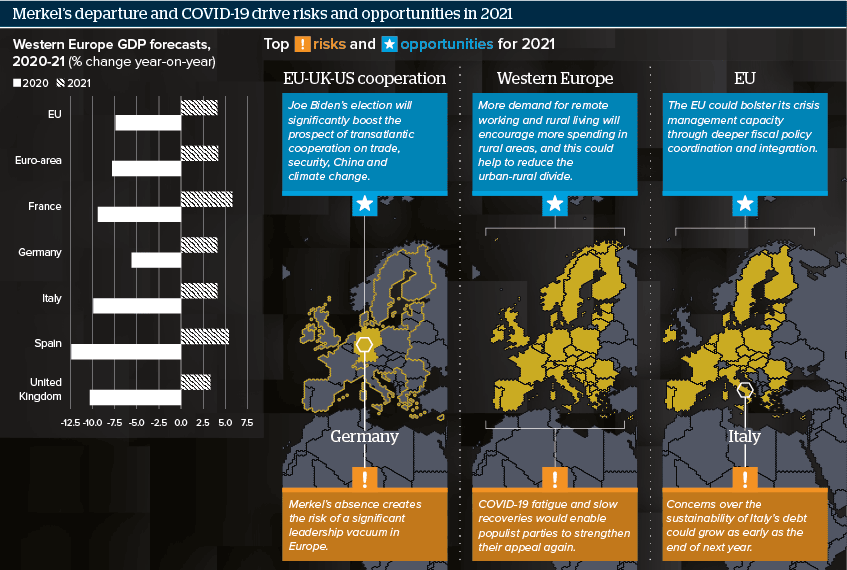Risks and opportunities 2021: Western Europe
Chancellor Angela Merkel’s exit from politics and a revival in populism represent key risks over the next year
Source: Sources: European Commission Economic Forecast, Autumn 2020; Oxford Analytica Map styling: ‘Wargames’ by Daniel P. Huffman via Project Linework
Outlook
German Chancellor Angela Merkel’s departure from the political scene threatens to damage her Christian Democratic Union’s results in September’s federal elections, which would make government formation and policymaking more cumbersome. At the EU level, Merkel’s capacity to unite member states and provide strategic leadership will be difficult to replace.
Lockdown fatigue, frustration with vaccine roll-out and economic and social discontent will provide an opportunity for populist parties to revive their appeal. German and Dutch elections will give an important indication of populist support in the wake of COVID-19, while slow recoveries in France and Italy could provide openings for populists to enter government.
Impacts
- French President Emmanuel Macron, preoccupied with domestic challenges, will struggle to lead the EU after Merkel’s departure.
- Weaker states’ failure to use the EU recovery fund effectively would make richer states more opposed to further EU fiscal support.
- Another significant influx of migrants would accentuate divisions in the EU-27 during an already fragile period.
- Victory for the Scottish National Party in May’s Scottish parliamentary elections could trigger the start of a UK constitutional crisis.
See also
- Biden offers a new impetus for US-German relations - Jan 4, 2021
- Prospects for Western EU in 2021 - Nov 30, 2020
- More graphic analysis
